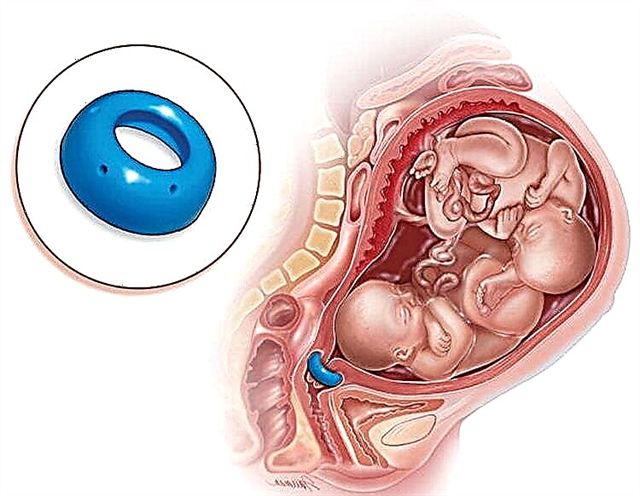The first months after birth, the baby sleeps almost all the time, wakes up for a few minutes to eat. At the end of the adaptation period and with a set of muscle mass, the little one is more and more active during the day. All the same, he should doze between feedings for at least 2 hours. If the child does not sleep all day, you need to find a reason.

The kid cannot sleep
Why is a newborn awake
When a baby is spontaneously fed, he wakes up when he pleases. If everything is in order with the child, and he is full, then after eating, he immediately falls asleep. In a situation where the baby does not sleep all day, there is the influence of negative factors. Some are easily removable, others require close attention.
The main reasons are hunger and thirst
When an infant wakes up every 1.5-2 hours and asks for food, this is normal for children who eat little. Once full, the baby falls asleep again. When a newborn baby does not sleep at all during the day, this is an indication that something is bothering him.
If the baby urinates a little, a logical conclusion suggests itself - he does not have enough food. There may be several reasons for fasting:
- mother's milk is not saturated enough, and the little one does not receive the substances necessary for development; this is due to the improper diet of a nursing woman;
- the feeding technique was violated - the child took the nipple incorrectly, and air entered the stomach along with the milk;
- as an option, if the nipple is not seized correctly, only the near fluid enters the esophagus, the hind milk remains intact;
- the baby is kept on a strict regime, and the interval between feedings is long.
Another reason why a baby does not sleep during the day is thirst. A child under one year old usually does not need additional fluid. He has enough breast milk to maintain hydrobalance. If the mother ate fatty or salty foods, this can provoke thirst not only in her, but also in the baby.

Something interferes with sleep
Important! High fever in a newborn, diarrhea, profuse regurgitation and a hot microclimate can lead to dehydration. Therefore, if the toddler asks for a drink, you need to satisfy his desire.
External factors of sleep disturbance
If the baby does not sleep well during the day, but is not hungry, other options for non-standard wakefulness should be considered. It is enough to identify and eliminate them, the baby will fall asleep immediately.
External reasons
| Factor | Description |
|---|---|
| Physical discomfort | The little one can be annoyed by the clothes in which he sleeps: • it is tight and presses; • rub the seams; • made of unnatural material. Discomfort is caused by bedding, an uncomfortable pillow or mattress. |
| Unsuitable indoor climate | In newborns, the heat exchange system is imperfect, so the body is sensitive to temperature conditions in the room. The optimum air temperature for sleeping a baby is + 18-24 °. The child will wake up frequently from both heat and cold. You should also pay attention to air humidity. A dry, stagnant climate in an unventilated room is another factor of discomfort for the baby. |
| Sensory irritants | Babies react very early to light and sound. If shading is not done in the room during the day, then the sun's rays streaming through the window will interfere with the child. Noisy neighbors, loud TV, car horns, dogs barking and children screaming outside the window - all can become a factor for restless sleep. |
| Violation of hygiene | The toddler may cry and refuse to sleep due to the fact that he has wet diapers. Even if the baby crumples and continues to sleep, it is better to wash and change his clothes immediately. Otherwise, due to diaper rash on the bottom and groin, irritation will appear, which will completely disrupt the baby's sleep. |
Such factors can be avoided initially, if you take care of a comfortable bed and pajamas, adjust the temperature regime and regularly ventilate the room where the baby sleeps, curtain the windows with blackout curtains and chat with neighbors.
Emotional and psychological reasons
Growing up, the baby begins to react to the world around him. The child becomes emotionally receptive. So far, all the events of the day are postponed at a subconscious level and formed into dreams. The stronger the impressions, the more often the baby wakes up.
Strong arousal can deprive a child of sleep altogether. It doesn't have to be negative emotions (like a parenting scandal). The baby is able to get excited from a new toy, communication with other children or adults, meeting an animal, etc.
Health problems
The most serious reason for a toddler's daytime insomnia is poor health. Even a mild cold will lead to sleep disturbance. Diseases of internal organs, functional disorders, pathologies that have arisen against the background of pregnancy and childbirth are a common cause of concern.

The kid got sick
In this case, besides insomnia, other symptoms will be present. Therefore, you should not solve the problem on your own, without the participation of a doctor.
Spontaneous mode
Despite the fact that the child's body is subordinate to its biological clock, sometimes the mother's behavior makes an adjustment. Not everyone understands the on-demand feeding technique correctly and lays the baby to the breast as soon as he wakes up. The child gets used to this, and as soon as you put him in the crib, he immediately wakes up.
As a result, the woman gets tired of such running, does not have time to do anything about the housework, as a result, ignores the cry of the baby. An unsatisfied desire to be close to mom can be a reason for overexciting the little one. In the future, it will be difficult to put him in the crib.
Sleep phases
Children's sleep consists of a light and deep phase, which change every 20 minutes. Newborns are sensitive to transitional moments and wake up from this. Children, who are accustomed to sleeping with their mother at night, without finding her next to them in bed during the day, begin to cry.
Having put the little one to bed, it is recommended to quietly watch him fall asleep for the first 20 minutes. So the mother can help the baby calmly pass from the light to deep sleep phase.
With age, babies stop responding to such transitions. After waking up for a few seconds, they fall asleep on their own.
Helpful Tips for Baby Sleep
Some mothers believe that if the baby does not sleep during the day, then it will not wake up at night. Therefore, they do not take any measures for a good rest of the baby during the daytime, but this is not correct.
Note! A child who is awake all day quickly becomes overworked. His nervous system is tense from this and interferes with a full night's sleep.

Healthy sleep
The younger the toddler, the more he should sleep during the day. Even for children after one year, one afternoon nap is provided. Newborns need to rest several times between feedings.
Sleep duration
Babies up to 3 months old, if healthy and well-fed, do nothing but sleep between meals. Then their inner mode is rebuilt, and there are gaps for wakefulness. Due to this, the periods of daytime sleep are shortened.
Note! The mother should observe the baby's behavior to determine the most appropriate time when the baby is most comfortable sleeping.
From the 4th month, children's sleep becomes cyclical and shorter in the daytime. For babies up to a year, several periods of sleep during the day lasting 40-50 minutes are characteristic. Then, the toddler needs only one trip to rest 1-1.5 hours long.
When the baby's rhythm is out of order, the daytime sleep cycle becomes short - from 15 to 30 minutes. A small child does not have time to rest and is overexcited. Therefore, the mother must take steps to extend the baby's nap cycle.
How to provide your baby with a healthy rest
Having decided on the reasons why the newborn does not sleep during the day, it will not be difficult for mom to organize a good rest for the baby. Most of the factors that prevent you from falling asleep or waking up prematurely are indirect, therefore easily eliminated.
How to eliminate the causes of poor sleep
| Factor | What to do |
|---|---|
| Hunger | From the 4th month, it is recommended to eliminate the association of sleep with feeding. The algorithm should look like this: food-wake-sleep. So that the child does not have time to get hungry before going to bed, breakfast and lunch should be as complete as possible. |
| Thirst | If the room is too hot or the baby is sick, you can give him a bottle of water if he wakes up prematurely. After drinking, the little one will fall asleep again. |
| The discomfort | To ensure a sound sleep for your baby, you should worry about a comfortable bed. For relaxation, the child should have pajamas, matched to the size. It is recommended to swaddle a newborn up to 3 months so that the spontaneous movements of its arms and legs do not disturb sleep. |
| Climate | It is important to maintain optimal temperature and humidity in the bedroom. Before putting the child to bed, the nursery must be ventilated. |
| Sensory stimuli | The baby sleeps better in a darkened room. Therefore, it is necessary to hang black out curtains on the bedroom windows, preventing the penetration of daylight. Loud sounds should be excluded while the baby is sleeping. But the complete silence of a child can be frightening, because when he was in the womb, he got used to monotonous noises. For this reason, children sleep well in a stroller during a street walk, the sounds of the road have a soothing effect. Sources of "white noise" in a baby's room can be a monotonous fan, rain outside the window, calm music or a recording imitating the murmur of a river, the noise of a waterfall, chirping of birds, etc. |
| The kid is not tired | With each passing month, the interval between eating and sleeping should increase. This time is set aside for games and activities. If the child does not yawn and does not show signs of fatigue, you can put him to bed half an hour later than planned. Sometimes a day's rest can "spoil" the microsleep in 5 minutes under the mother's breast while eating or when rocking in the car. In such cases, it is best not to let your baby sleep. |
| Overwork | The opposite of the previous point, the situation is associated with a long period of wakefulness or poor sleep at night. To prevent the body from producing cortisol, which prevents sleep from going into the deep phase, the mother must correct the baby's regimen *. |
* The child himself can suggest the optimal hours for sleep. There are gaps in the biological phases of the body when melatonin is produced. With the onset of the "sleepy window", the baby begins to yawn. Usually this phenomenon occurs during hours with:
- 8-30 to 9-30;
- 12-30 – 14-00;
- 15-00 – 15-30.
It is worth adjusting the baby's mode to this time. For some children, the "windows" may coincide with another period. It all depends on what time the little one is sent to bed in the evening and woke up in the morning.

Sleep with white noise
Note! A diary of observations of the baby kept by the mother will help determine the optimal time for sleep.
To set up the baby for rest, it is recommended to turn preparation for bed into a kind of ritual with a sequence of specific actions:
- enable recording of "white noise";
- curtain the window;
- give the baby a dummy;
- put a toy next to it (the same one), etc.
Mom can come up with other actions, but the algorithm must be constant. The main thing is that the baby perceives them as a signal to rest. For a night's sleep, it is better to use a different environment.
How to extend a short cycle
By observing the baby's rest every day, the mother will be able to determine its duration. If the sleep cycle is short (less than an hour), it can be gradually lengthened to the desired duration. For this, the baby is gently shaken 5-10 minutes before his usual awakening, and no more action is taken.
After making sure that the baby's eyelids twitch slightly, the baby is left alone. Thus, the cycle is restarted, and the baby enters the deep sleep phase. If the mother is too active, or other factors are involved, the little one will wake up completely.
Waking up 10 minutes earlier shouldn't worry. It is enough to do the procedure every day, and after a week of exercise, you can get rid of the short cycle, bringing the daytime sleep to an hour and a half.
Let him lie in the crib
Quiet hours can be practiced even with a short cycle. If the baby woke up before it was time to wake up, do not twitch and immediately approach the crib. Mom should not pay attention to the child: take him in her arms, open the curtains.

Toddler woke up
At this time, there should be no toys in bed with an infant, except for a constant "companion" for sleeping. If the baby is capricious, tossing and turning, this is not a reason for a quick response. Gradually, the little one, having been capricious, will calm down and fall asleep again. When the time comes for the legal awakening, they turn off the lullaby melody, remove the blackout curtain from the window and take the child in their arms.
Mom's daily monotonous reaction to a premature awakening will very quickly develop the baby's habit of sleeping longer. The child will understand that there is simply no other alternative, like sleep, during this period.
When a newborn does not sleep during the day, it is worth considering all possible causes and eliminating them. Overwork is fraught with serious consequences, primarily affecting the nervous system.
Important! A sick child who cries violently and does not want to fall asleep should not be forced to bed. In this case, the toddler must be shown to the doctor.
If a baby is characterized by short cycles of daytime sleep, while he is calm, eats well, cheerful during periods of wakefulness, you should not worry. Apparently, this is how his biological clock is arranged.



